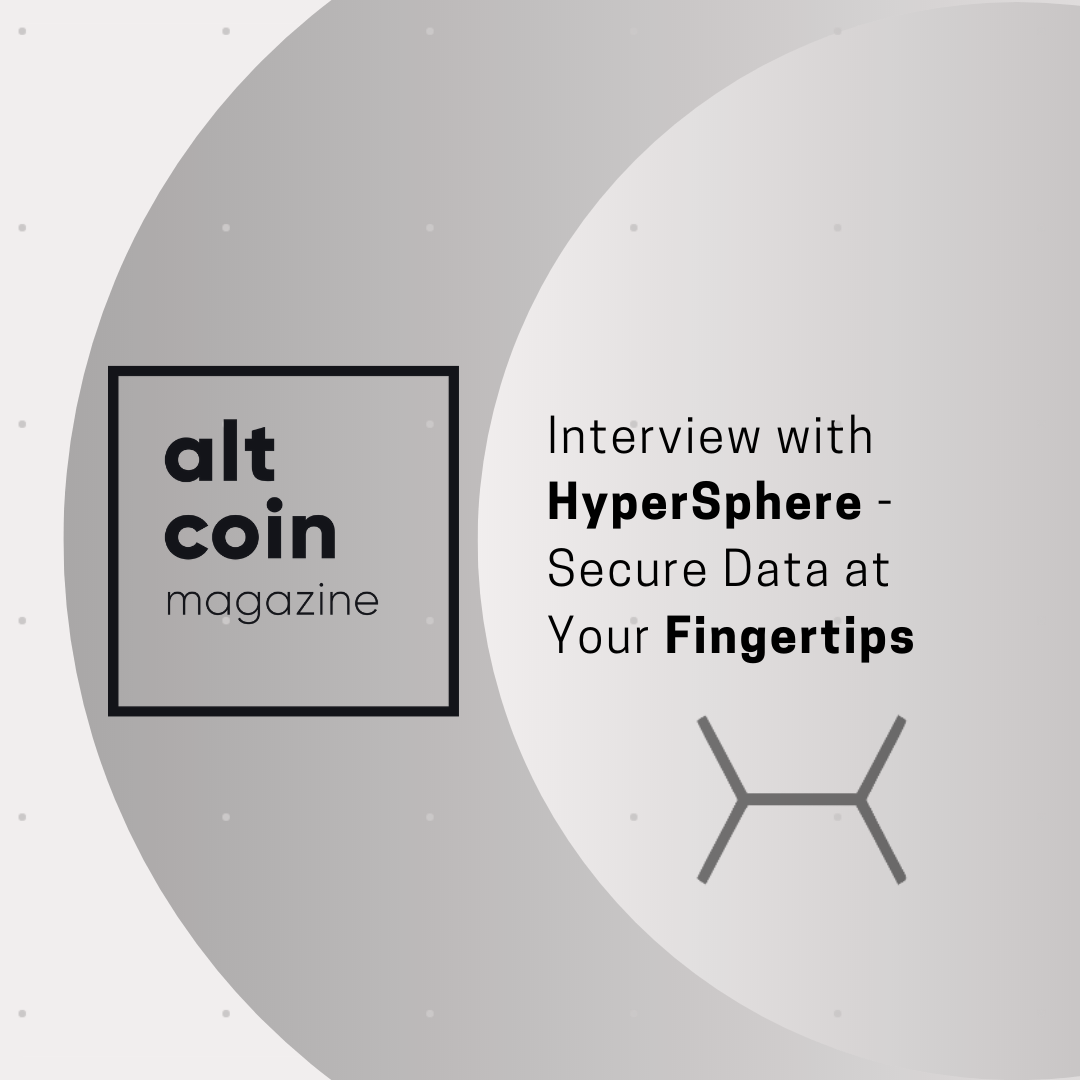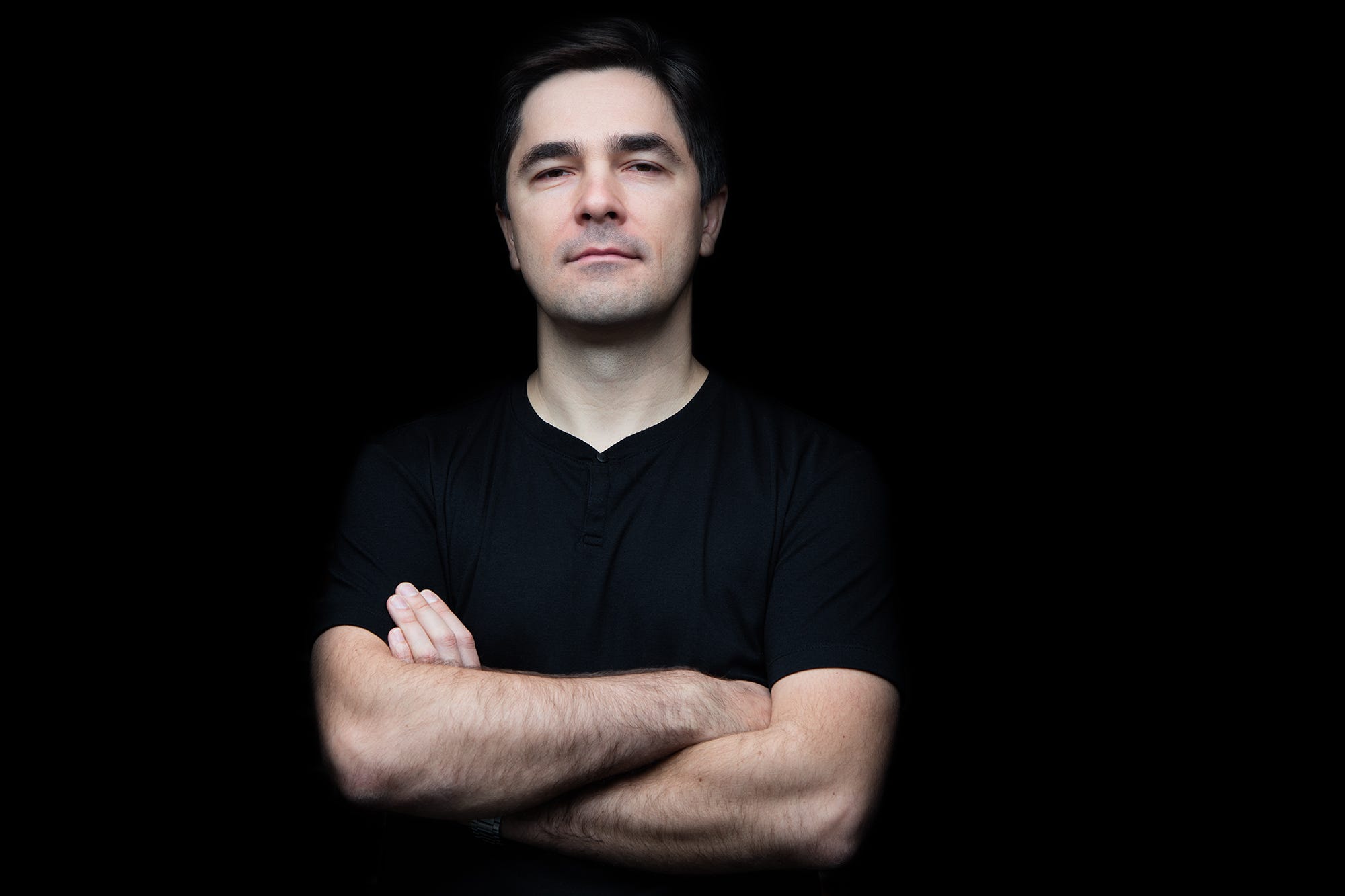
The Capital: Interview with HyperSphere - Secure Data at Your Fingertips
May 29, 2019
Recently we sat down with Evgen Verzun, a founder of HyperSphere, the project which creates a decentralized cloud for companies, people and robots to securely interact. Besides being an inventor and serial entrepreneur, Evgen is an expert in cybersecurity, mission- and time-critical systems. We discussed the future of internet security and how HyperSphere will unfold data economy by securing internet communications.
Hey, guys! What a lovely time to sit down and get to know you. During our research we found that you are solving a massive problem, known to only very few businesses, so it’s our mission to help you spread the word about HyperSphere.
HyperSphere is a decentralized cloud system for data protection, but can you tell us some more about your platform?
We are building a secure decentralized cloud, which is designed to provide ultimately protected and private ways to monetize data on one hand. On the other hand, HyperSphere can help utilize idle computing resources. In simpler words, we are a secure cloud, based on sharing economy, i.e. without owning any servers — like Airbnb is the biggest chain of living spaces without owning houses or Uber is the biggest taxi chain without owning a single car.
How did you came up with the idea of building a cloud without servers?
In HyperSphere, we have been developing ways to secure the internet and eliminate cybersecurity risks during the last two years. It will help us create a marketplace that allows anyone will be safe to share and monetize data or computing resources and concentrate on the bigger goals. We don’t see any meaning in building additional data centers — the way big companies like Microsoft or Amazon do. There is already a big infrastructure of data centers all around the world, which is not used to its full potential. You might have seen statistics proving that modern computers are idle almost all the time: many office computers are even rarely switched on. McKinsey proves that commercial and corporate data centers are in use just for 5–15% of their capacity. It is very sad to recognize that there are no mechanisms to utilize all the unused resources. Our company provides such mechanisms so everyone can share resources efficiently and profit from it.

HyperSphere is a decentralized cloud but what exactly makes you diffrent compared to other clouds?
Yes, nowadays there are a lot of projects like Golem, FileCoin, Storj or others that are creating decentralized platforms, and this is great. But we cannot rely only on the blockchain technology. Security and privacy of the data in the decentralized network are critical. So, we invented a number of cybersecurity layers that make HyperSphere’s network absolutely bulletproof against cyber attacks. By providing ultimate security, we aim to create a solid ground for digital trust, which will be the foundation for the future business relations within HyperSphere. Some time ago, the Internet was a pillar for the digital economy, but nowadays, businesses can adopt emerging technologies faster than cope with all the security threats — and this is a big obstacle for sharing economy to grow.
What are the biggest challenges you can see for the HyperSphere in the next year? How are you going to drive adoption of your solution?
We work on several use cases at the moment. The Holy Grail for the data-driven markets, of course, the way of always keeping data encrypted during storing, transferring or analyzing it. Our mechanisms to keep digital data secure open huge opportunities on Big Data and AI markets. Just imagine that in order to analyze client’s Big Data, the contractor analytics company does not need to decrypt of the entire data. And the owner of such data always can track who accessed it or when and can change permissions at any moment.
Besides developing secure communications for AI and Big Data businesses, currently, we focus on FinTech projects, where secure payments and identity systems needed. Currently, we are also adopting our cybersecurity technology as a platform for autonomous cars. It is a great example of how the world will become increasingly connected in several years — with the adoption of IoT devices and mobility services. And this is a use case, which can perfectly explain why security and privacy are critically important for such connected infrastructure. The data protection in the autonomous cars’ communication cannot be mediocre — it should be the highest, next level of cybersecurity, which HyperSphere plan to deliver.
So, in what ways can businesses “unlock” the data economy and benefit from it?
Data is to the digital economy what oil is to the industrial economy. With each new day, we are moving towards data-driven economic decisions. By providing hyper-security to data and computing resources, HyperSphere creates a solid ground for data economy, so companies can exchange and monetize data without fear of the potential data breaches. Hyper-security will provide companies with the ability to create cost-effective business models. Moreover, the embedded crypto economy will allow getting paid instantly for the services or resources, as soon as the task is completed. What is most important is that our crypto economy will be based on the real value of computing resources or data. Such an economy will be able to accelerate the turnover of resources and number of services. Thus, in a long term perspective, it will help to lower TCO of the data centers, but the demand for them will grow. The synergy of newest technologies, used by HyperSphere, plus crypto economy, create the ground for the sustainable data economy.
Awesome! What is your bigger vision of the HyperSphere’s success?
We see our mission in pioneering the data-driven market: it is important to give the businesses ways to monetize big data in a private and secure way, as the world is shifting towards data as the new economic value. Also, we hope that HyperSphere will revolutionize not only commerce, which is a priority for us right now but also add value to our lives, and humanity in general. I imagine HyperSphere in a decade from now, can allow anyone to launch charity projects and donating resources to the research institutions, which need big volumes of computing power to solve critically important tasks. The scope of such tasks might vary, but all of them aim to accelerate our development as humans: making important calculations to find remedies to cure cancer and other diseases; saving the earth from the pollution or discover space, which will allow completing such projects with greater cost-efficiency and less time. For instance, a recent project that was dedicated to making the first pictures of Black Hole and required creating complex algorithms, based on big volumes of data, could be done much faster and with much fewer resources. The entire team of HyperSphere is looking forward to the times when we will be able to do this.
